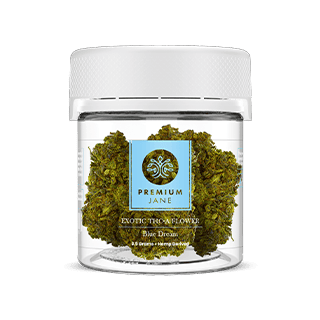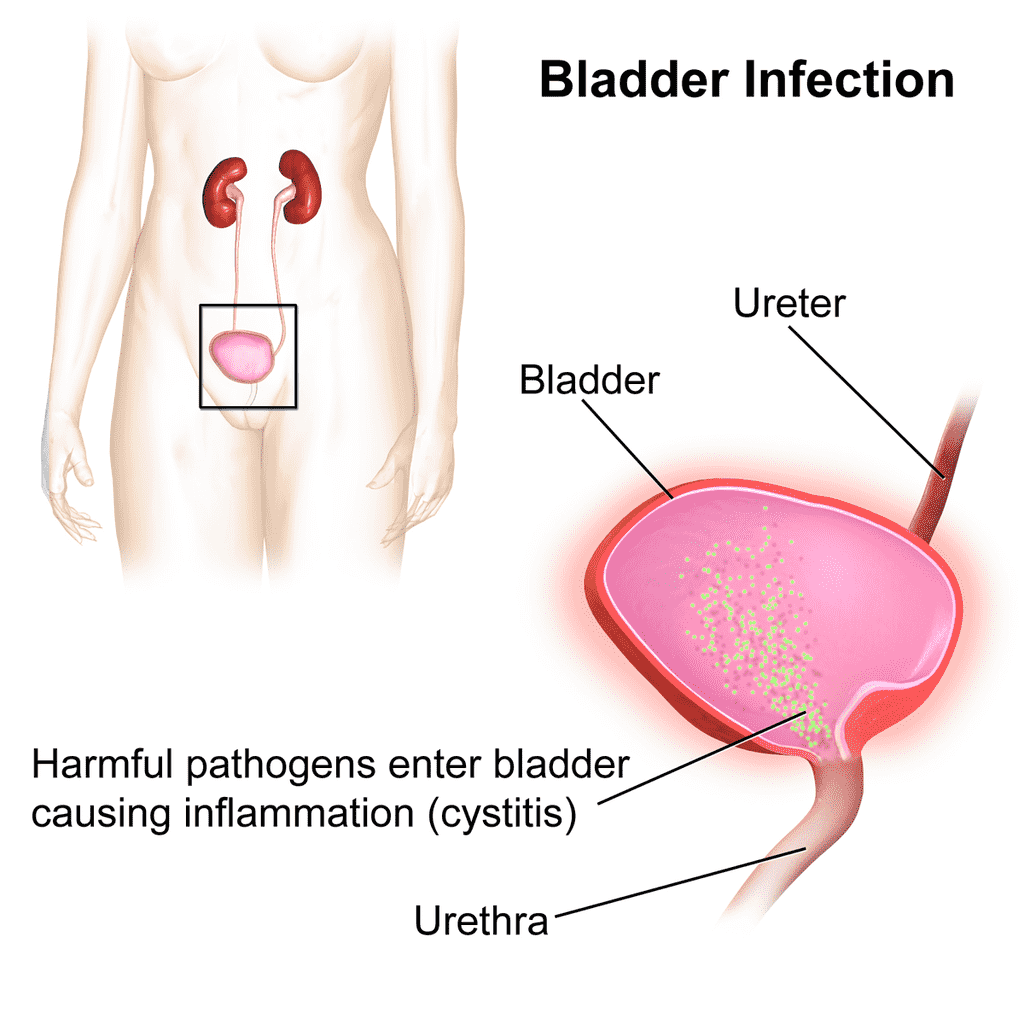UTI, short for Urinary Tract Infection, is an infection in any part of your urinary system. While most infections involve the lower urinary tract, the bladder, and the urethra, a urinary tract infection can appear in several places, including your kidneys, ureter, urethra, and bladder. UTIs are relatively common in women, but men may also suffer from Urinary Infections.
A Urinary Tract Infection happens when bacteria get into the urinary tract and start multiplying. As a result, there is swelling, pain, and redness in the urinary tract. The majority of UTIs remain in the bladder, and if they are not treated quickly, the bacteria could travel to the kidneys and cause a severe infection called pyelonephritis. This infection of the kidney can cause back pain and fever.
What people don’t realize is just how many of us suffer from a UTI at some point in our lives. A study by Al-Badr and Al-Shaikh, published in the Sultan Qaboos University Medical Journal, reviewed recurrent UTI management in women. In the review, the researchers stated that “UTIs are one of the most frequent clinical bacterial infections in women, accounting for nearly 25% of all infections.”
Incredibly, the researchers went on to say that 50-60% of women will develop UTIs during their lifetime! The review stated that women are eight times more likely to develop a UTI than men, and frequent sexual intercourse was one of the biggest risk factors. One of the primary reasons for this discrepancy is because the urethra in females is shorter than in males, so bacteria find it easier to access the bladder.
UTIs are generally classified into six categories:
- Uncomplicated Infection: When the urinary tract is physiologically and structurally ‘normal’ with no associated disorder that damages the host defense mechanisms.
- Complicated Infection: This occurs when there is an infection in an abnormal urinary tract.
- Isolated Infection: This is when you have the first instance of UTI or else the incidences are six months apart. 25-40% of young women fall into this category.
- Unresolved Infection: The failure of therapy due to bacterial resistance or else there is an infection by a pair of different bacteria with “equally limited susceptibilities.”
- Reinfection: This is when there is no growth after an infection has been treated, but unfortunately, the same organism regrows within a fortnight of therapy, or if a different microorganism grows at any stage.
- Relapse: As the name suggests, this issue happens when the same microorganism causes a UTI within 14 days of therapy. However, doctors find it hard to determine the difference between a relapse and reinfection.
The Mayo Clinic makes things simpler by dividing UTIs into three categories according to the part of the urinary tract that is affected:
- Kidneys
- Bladder
- Urethra
There has been a worrying increase in hospitalizations for UTIs in the United States. Between 1998 and 2011, the incidence of UTIs increased by an incredible 52%. In 2011, there were over 400,000 hospitalizations for a UTI in the U.S. at an estimated cost of $2.8 billion.
According to the National Kidney Foundation, Urinary Tract Infections are responsible for almost 10 million doctor’s visits each year. It is obvious then that this is a major medical issue, and despite advances in medicine, the rate of UTIs seems to be increasing rather than decreasing. There are those who believe that marijuana could help, so let’s take a look to see if the science supports this theory.
First, let’s look at the causes of UTIs, followed by the type of medical treatments currently available.

Want to experience the qualities of THC-A flower? The amazing brand Premium Jane just launched their new line, including strains like OG Kush, Purple Cream, and Blue Dream Pie. Averaging 23% THC-A, there’s so much to love with these flowers. Try them today to get 20% off using WayofLeaf’s exclusive coupon code: THCAWOL
Causes of Urinary Tract Infections
One of the major causes of Urinary Tract Infections is lack of hygiene. It’s as simple as that. From when we are children, we are taught to wipe from front to back after using the bathroom, and there is a good reason for that. As the urethra is located extremely close to the anus, it is susceptible to infection from bacteria that are found there.
At least 80% of UTIs are caused by a type of bacteria called E. coli, which normally live in your intestines but occasionally find their way to your urinary tract. A much lower percentage of UTIs are caused by less common forms of bacteria.

Sexual intercourse may lead to cystitis, a relatively common lower urinary tract infection that affects the bladder. Although cystitis is not normally a serious condition, it is extremely uncomfortable and can result in complications if not dealt with. However, you don’t need to be sexually active to develop this condition. All women are at risk due to the short distance between the urethra and the anus, and from the urethral opening to the bladder.
An infection of the urethra, also known as urethritis, occurs when gastrointestinal tract bacteria spread to the urethra from the anus. As the female urethra is located near the vagina, sexually transmitted infections such as gonorrhea, herpes, and chlamydia, can also result in urethritis.
In extreme cases, a UTI could result in a life-threatening infection called sepsis. There is a bigger risk of this problem occurring if the infection moves from the urinary tract to the kidneys.
Cystitis and urethritis in men tend to occur due to obstruction of the urethra by the prostate or an infection of the prostate, which then spreads to the bladder and urethra.

Risk Factors
Aside from female anatomy and regular sexual activity, other risk factors include:
- Birth control options such as diaphragms and spermicidal agents.
- After menopause, women suffer a decline in estrogen circulation, which leads to changes in the urinary tract that increase the risk of infection.
- Babies born with a urinary tract abnormality that doesn’t allow urine to leave the body normally or causes it to back up in the urethra are at greater risk of a UTI.
- Blockages in the urinary tract such as an enlarged prostate or kidney stones.
- A suppressed immune system which may be caused by diseases such as diabetes.
- Use of a catheter to urinate.
- Recent urinary procedures.
Major Symptoms of a Urinary Tract Infection
Urinary Tract Infections can be extremely discomforting. The following symptoms are common:
- A burning sensation when you urinate.
- The urge to frequently urinate.
- Pressure or uncomfortable pain in your lower abdomen or back.
- Dark or bloody urine.
- Feeling constantly fatigued or tired.
If the infection spreads to your kidneys and becomes worse, you may experience the following symptoms:
- Fever and chills.
- Vomiting and nausea.
- Severe pain in your lower back.
If you believe you have a UTI, pay a visit to your physician ASAP. During the appointment, your doctor will test a sample of your urine for blood cells and bacteria in what is known as a urinalysis. This sample tells the doctor what bacteria are present. To begin with, you will probably be given a prescription for antibiotics.

Also, your doctor will advise you to drink lots of water to help flush the infection out of your system. Some people also drink cranberry juice, soda, ginger tea, or even parsley water.
If they fail to clear up the problem, you will probably be referred to a specialist called a urologist. This urinary tract expert will order tests such as an ultrasound exam, a cystoscopic exam, urodynamics, and an intravenous pyelogram.
Conventional Remedies for UTIs
Antibiotics are the typical first course of action. If you get 3+ UTIs per year, your doctor may ask you to remain on antibiotics for at least six months. It may also be necessary to take an antibiotic after sex, or for a couple of days when the symptoms of a UTI occur. Commonly used antibiotics include:
- Amoxicillin/augmentin
- Fosfomycin (Monurol)
- Cephalexin (Keflex)
- Ceftriaxone (Rocephin)
- Ciprofloxacin (Cipro)
Although you may be unable to 100% prevent a UTI from occurring, following these steps can help reduce the risk:
- Drink plenty of fluids.
- Drink a glass of cranberry juice daily. Research also suggests that dried cranberries or dietary supplements that include cranberries can help. The fruit contains compounds that may prevent specific bacteria from attaching to the urinary tract wall.
- Go to the bathroom whenever you feel the urge, and make sure you empty your bladder before bedtime.
- Women need to wipe from front to back to prevent bacteria from making their way to the urinary tract.
- Women also need to clean their genital area daily, and also before having sex.
Marijuana and UTIs
There hasn’t been a huge amount of research performed on marijuana’s impact on UTIs. The prohibition of the herb makes it almost impossible for American scientists to properly research cannabis on the whole.
However, a few findings have generated interest. For example, Boudes and De Ridder found that the CB1 (cannabinoid 1) receptor plays a role in a healthy bladder. The report, published in BJU International in 2013, discovered that our bladder walls are lined with CB receptors which the cannabinoids in marijuana and hemp can act upon.

Developing a greater understanding of how the cannabinoids in weed impact our endocannabinoid system (ECS) is the key that could unlock all manner of information on how marijuana could help alleviate medical symptoms. The ECS was discovered in the 1990s and could be evidence that marijuana was made for mankind!
Cannabinoids such as THC and CBD that are found in marijuana are known as ‘exogenous’ cannabinoids, which means they are formed outside of the human body. However, researchers have since discovered that there are two ‘endocannabinoids’; cannabinoids that exist within the human body. These endocannabinoids are called 2-AG and anandamide.
These endocannabinoids work with the ECS, which has been classified as “the only endogenous system of chemical signals that is involved in everything.” The ECS plays a role in a variety of functions including memory, learning, immune and inflammatory response, digestion, pain response, fertility, and more.
What’s especially interesting is the apparent link between endocannabinoids and the concept of homeostasis, which means maintaining a sense of physiological balance in the body. It is possible that endocannabinoids seek to address imbalances caused by injury or disease.
Weed & UTIs – The Scientific Research
A study by Tyagi et al., published in the Indian Journal of Urology in 2010, looked at the functional role of cannabinoid receptors in the urinary bladder. It concluded that “the growth-inhibiting action of cannabinoids acting on these receptors expressed on transformed cells might be useful for the management of malignancy in the bladder.”
A more recent study, by Bjorling and Wang, published in Frontiers in Systems Neuroscience in 2018, looked at the potential of endocannabinoids when controlling bladder pain. The research involved mice, and it was discovered that when the mice received cannabis, their CB2 receptors were activated. As a result, their level of swelling and bladder weight was reduced.
Is Marijuana an Effective UTI Remedy
Several studies have found that CB1 and CB2 receptors are present in the human bladder. There is also evidence that expression of the CB2 receptor in rodents is increased when they have chronic and acute cystitis. It seems as if the ECS could play a significant role in modulating the severity of bladder inflammation and pain.
Unfortunately, specific research on marijuana’s effect on UTIs is limited. In the United States, weed is a Schedule 1 drug with ‘no medical value.’ Also, would-be researchers looking to use marijuana for any study must jump through an array of hoops. They also receive weed from the University of Mississippi, which bears no relation to what you will find in a dispensary.
At present, most relevant research relates to the effects of cannabis on the bladder. A 2013 study by the American College of Obstetricians and Gynecologists found that administering cannabis extracts in THC improved urinary incontinence by up to 25%!
Alas, we will be forced to wait for further research into the ECS first before researchers have the opportunity to look at how weed can help people with UTIs. If you are interested in using cannabis to help treat the symptoms of UTI, here are a few strains worth considering:
- Cannatonic: This is a high-CBD strain that won’t get you stoned. Its main downside is you may need to use it more often than other strains as its effects don’t last too long.
- Blackberry Kush: This indica-dominant strain is often used to treat pain, insomnia, and inflammation. It offers a delicious berry taste, a strong buzz, and some nice sedative effects. If the discomfort of UTI keeps you awake at night, use some of this strain before trying to sleep.
- Mr. Nice: Named after legendary drugs smuggler Howard Marks, Mr. Nice provides users with a happy, relaxed and euphoric high. It could provide valuable relief from chronic pain and inflammation.
- Green Crack: This sativa-dominant strain offers relief from pain but also keeps you focused and energized.
- Tangerine Haze: This sativa-dominant hybrid has a wonderful citrus flavor, and can invigorate you. It is often used to treat depression and stress, which may come about as a result of the pain caused by UTIs. Tangerine Haze is also strong enough to numb the pain.

Want to experience the qualities of THC-A flower? The amazing brand Premium Jane just launched their new line, including strains like OG Kush, Purple Cream, and Blue Dream Pie. Averaging 23% THC-A, there’s so much to love with these flowers. Try them today to get 20% off using WayofLeaf’s exclusive coupon code: THCAWOL


![Are You Allowed to Pick up Weed for a Friend? [Explained]](https://wayofleaf.com/wp-content/uploads/2020/06/wol_are-you-allowed-to-pick-up-weed-for-a-friend-1-640x225.jpg)
![Is Cannabis Considered a Superfood? [Answered]](https://wayofleaf.com/wp-content/uploads/2020/06/wol_is-cannabis-considered-a-superfood-640x225.jpg)








![Why Does Weed Make You Hungry? [Answered]](https://wayofleaf.com/wp-content/uploads/2018/03/mj_weed-munchies_1920-640x225.jpg)

